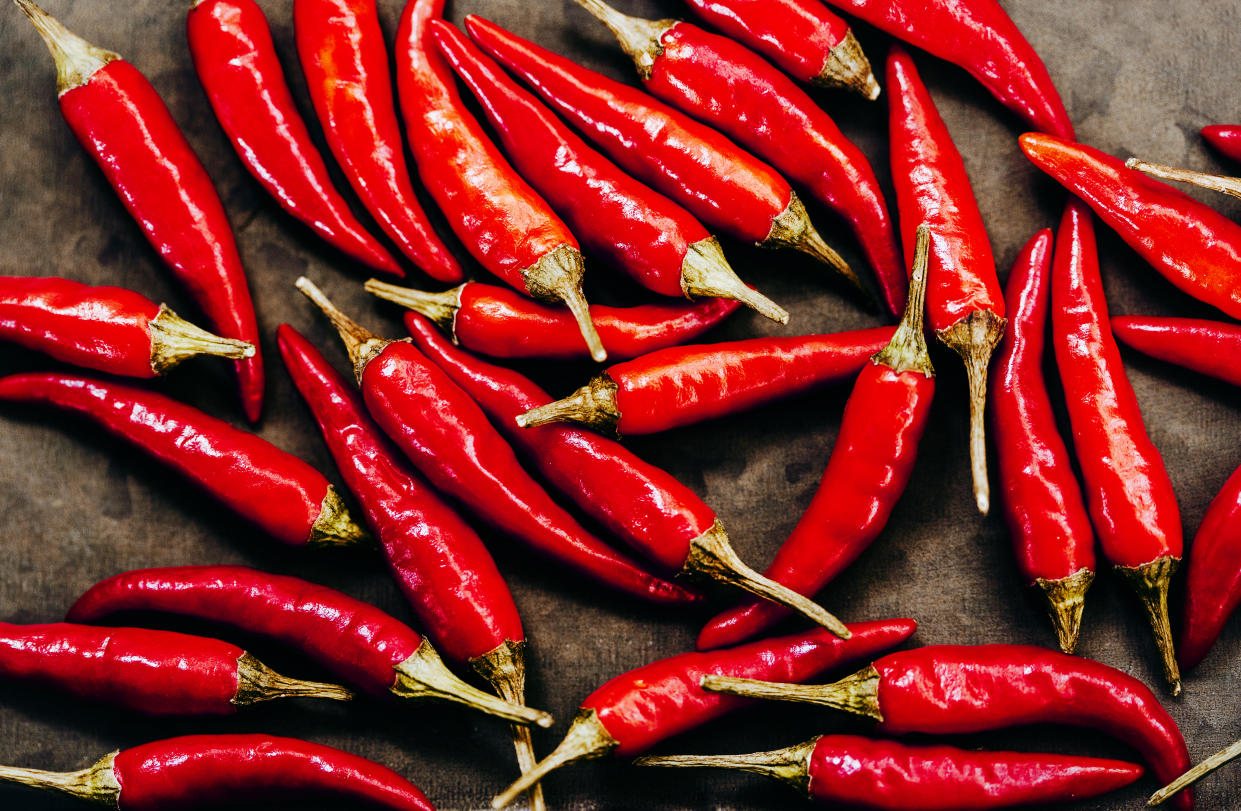Adding chilli to your meals could ward off an early death

Adding a bit of spice to your food could ward off an early death, research suggests.
Scientists from the IRCCS neurological institute in Pozzilli, Italy, looked at the chilli pepper consumption of more than 22,800 adults.
They found those who ate the hot stuff more than four times a week were 44% less likely to die from coronary heart disease – when blood vessels narrow due to a build-up of plaque – over the next eight years.
Their risk of dying from cerebrovascular diseases, like stroke, also went down by 61%, the results show. These conditions affect the blood vessels supplying the brain.
READ MORE: How to make chilli
The Mediterranean diet – rich in olive oil, vegetables and fish – has long been praised for its heart healthy properties.
“Chilli pepper is a fundamental component of our food culture,” study author Prof Licia Iacoviello said.
“We see it hanging on Italian balconies and even depicted in jewels.
“Over the centuries, beneficial properties of all kinds have been associated with its consumption, mostly on the basis of anecdotes or traditions, if not magic.
“It is important research deals with it in a serious way, providing rigour and scientific evidence”.
READ MORE: Being vegetarian could 'lower heart disease risk but increase chance of stroke'
The scientists therefore looked at participants of the Moli-sani Study. Started in March 2005, this analysed the health and genetics of around 25,000 people living in the Molise region of southern Italy.

Over an average of eight years, 11,236 of the participants died.
This was found to be significantly more likely in those who never or rarely ate chilli peppers compared to those who did so multiple times a week.
Results, published in the Journal of the American College of Cardiology, show the chilli eaters were 34% less likely to die from any form of heart disease and 23% less at risk of death from any cause during the follow-up period.
Spicy food was found to particularly benefit the participants without high blood pressure at the start.
Nonetheless, eating chillies benefited all those involved, regardless of the rest of their diet.
READ MORE: Heart attack gender gap is causing 'needless deaths of women'
“An interesting fact is protection from mortality risk was independent of the type of diet people followed,” lead author Dr Marialaura Bonaccio said.
“In other words, someone can follow the healthy Mediterranean diet, someone else can eat less healthily, but for all of them chilli pepper has a protective effect.”
Like peppers, chilli peppers are members of the capsicum family.
“We know the various plants of the capsicum species, although consumed in different ways throughout the world, can exert a protective action towards our health,” Prof Iacoviello said.
Capsicum species are rich in antioxidants and other nutrients. Spicy food may also promote weight loss by “firing up” our metabolism.


